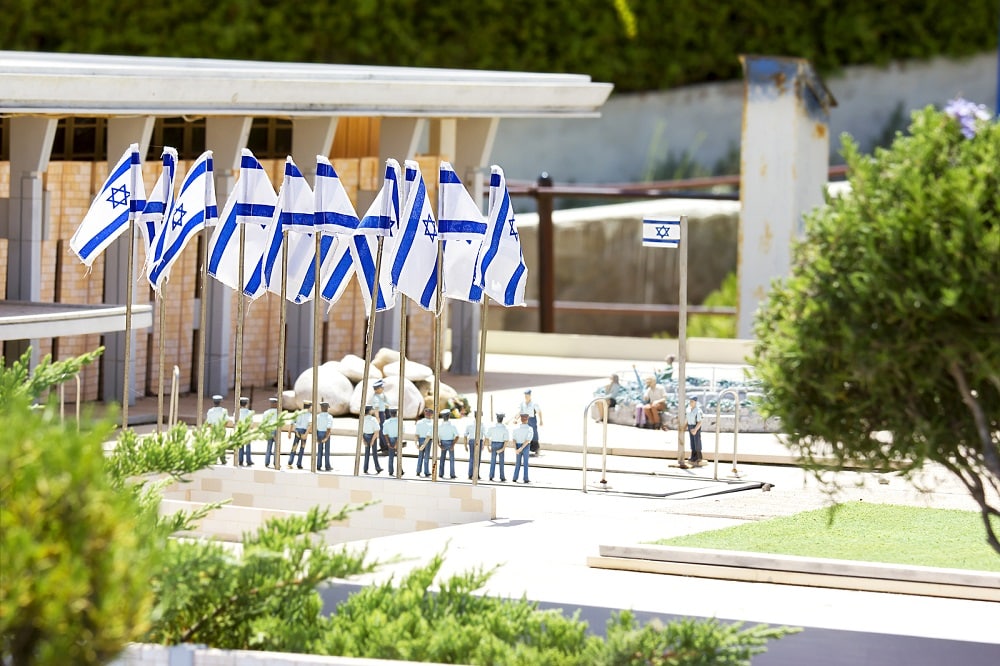By Amir Avivi, Chair of IDSF-Habithonistim
Here is Israel, we’ve always had to withstand tough political disputes, and we probably always will. The State of Israel often finds itself grappling with complex public judgments, and it is the government’s role to pass legislation, and then implement it. Of course, citizens have the right – and even the responsibility – to protest when they do not agree with their government’s policies. That’s how a healthy democracy operates: Some people are in favor, while others are against. Some are right-wing, and others left-wing. Some people support the government’s policies, while others oppose them and express their opposition openly.
The events that have transpired in the State of Israel over the last few weeks, however, go well beyond the normal rules of the game. Retired senior officials from Israel’s defense establishment are taking advantage of their military ranks and positions to call for civil uprise and encourage illegal activity. These calls by senior officials are damaging the body that represents the Zionist ethos and unites all members of Jewish-Israeli society: the IDF. Moreover, to a certain extent, this is also harming the heart of democracy. Civilians who break the rules of the game are first and foremost damaging the democratic game itself.
Believe me, democracy is no less important to me than it is for any other Israeli citizen. It was not for nothing that I focused on the History of American Democracy in my master’s thesis in political science.
Involving the Military in the Political Debate Is Dangerous
As the leader of a movement whose members include senior retired IDF officers, I would like to make a point of clarifying that the issue of rank is relevant in discussions surrounding security-related issues. Does this mean that anyone who was a senior officer in the IDF is forbidden from expressing their views on other subjects? Of course not.
It is important, though, to remember that there is a difference between a civilian who expresses their own personal opinion and a senior retired official that expresses their opinion as a representative of a specific military unit, or signs a petition whose title emphasizes the fact that the signatories are former senior members of Israel’s security establishment. By what right are these retired senior officials linking themselves and their views with various IDF units and Israel Air Force squadrons? What about others serving with them in these units who hold differing views?
It’s not that we are facing an unusual test. Israeli governments have already handed down decisions on the most painful and sensitive issues, which have caused severe and painful harm to basic civil rights that were contrary to the will of large sections of the Israeli people. This happened when the Oslo Accords were signed, and again with the disengagement from the Gush Katif settlements in Gaza and Northern Samaria. The Israeli public passed these tests. Moreover, among the communities that were the most directly affected by these actions, such as the religious Zionist community, during the disengagement from Gush Katif – during which peoples’ homes were destroyed and the bodies of loved ones who’d been buried there were exhumed – no one refused to follow commands from their commanding officers, even though they believed with all their heart that the results of this unilateral move would bring about an increase in terrorism and missiles shot into Israel, both of which turned out to be factually correct. None of the individuals involved threatened that they would leave Israel. None of them threatened to harm the country or its position in the world. They played by the rules of the democratic game, however painful they may have been. In my eyes, this is true Zionism.

What Does IDSF-Habithonistim Think about Israel’s Judicial Reform? Irrelevant
IDSF-Habithonistim is not a political movement, so it is careful not to take a stance on political issues. If discussions about the judicial reform had been conducted as they should have been – within the confines of discourse inside the Knesset, with legal protestations – you wouldn’t now be reading this column, and IDSF-Habithonistim would not have needed to make a statement about this subject. How are senior IDF officers who specialize in security-related issues connected to this civil debate? This truly has nothing to do with our field of expertise, even if there are a number of distinguished jurists among us.
From the moment the IDF was introduced into political discourse, the debate over the reform became one that could potentially harm Israel’s security, and that is a shift that we are not willing to accept, and that crossed a red line. The moment this red line was crossed, we petitioned Israel’s president to immediately remove the IDF and any of its symbols from the political discourse, in accordance with our fundamental basic principle that states: “The IDSF-Habithonistim movement strives to keep all of Israel’s security forces out of the political discourse, across the board.” In our appeal to the president, we went to great efforts to steer clear of expressing our position regarding the judicial reform, for the simple reason that the IDSF-Habithonistim movement deals solely with national security, and not with politics.
If you’re wondering if it is even possible to take a stance on issues of national security without touching on political issues, the answer is yes, it certainly is. Categorizing people or ideas as right or left is not relevant in discourse about national security. Handling the Iranian threat or deciding how to operate in light of threats from terrorist organizations in the Gaza Strip or the Palestinian Authority are discussions that have nothing to do with the concepts of right and left. This type of discourse deals solely with security.
In an effort to make this crystal clear, I’d like to emphasize that the fact that we avoid engaging in politics does not in any way mean that we refrain from engaging in policymaking. Sometimes, dealing with issues of national security requires that we engage in policymaking. For example, last year, we opposed the gas agreement Israel’s previous government signed with Lebanon. We objected to that specific move since in our opinion it directly harmed Israel’s security. Our approach to the matter was very matter-of-fact: Our research department thoroughly analyzed each section of the gas agreement with Lebanon, and evaluated what all the possible security ramifications could be for Israel. IDSF-Habithonistim published its conclusions in a professional and organized policy paper that was submitted to the relevant bodies, but refrained from making any threats to boycott carrying out IDF reserve duty, calling for civil uprise or any form of illegal protest.
Taking advantage of an individual’s military rank for the sake of influencing the judicial reform is not the same thing. It has nothing to do with security – neither directly nor indirectly. It is a purely political move.
We Passed the Test, and there Is No Reason Others Can’t Succeed as Well
I feel comfortable expressing sharp and harsh criticism of the senior IDF officials whose actions are leading to the erosion of the values upon which the State of Israel and the Israel Defense Forces stand, since the IDSF-Habithonistim movement passed a similar test just one year ago. Israel’s previous government hinged on support from the Muslim Brotherhood, which, according to our in-depth analysis, presented an unprecedented danger to Israel’s security. That situation, in my opinion, directly harmed Israel’s security to a much greater extent than any sort of judicial reform could. Our movement’s decision at the time was to declare that the situation posed a danger to Israel’s security, which we did in the form of publishing an in-depth policy paper, without including names of IDF units, threatening to refuse to show up for military reserve duty, encouraging people to move overseas or harming Israel’s economy or image.

We Urgently Need to Close Ranks and Fight Shoulder to Shoulder
At the end of the day, we’re all here together facing the same severe and complex threats. We are currently living through one of the most dangerous and decisive times in the history of our nation. We are dealing with Iran and Russia on one front, the Americans are sitting on the fence, we are facing an internal-nationalist struggle here at home, and all of our borders have turned into Iranian strongholds of one kind or another. If we are going to overcome all of these threats, we must close ranks and leave our most important strongholds – and especially the IDF – out of the domain of politics.
We must fight shoulder to shoulder. You can be in favor of judicial activism, or you can be in favor of judicial conservatism. You can be in favor of or against judicial reform. You can think that the current status of Israel’s system of checks and balances is out of whack, or that implementing these legislative amendments is what will make our country become unbalanced.
According to IDSF-Habithonistim’s index survey, the body that has the most widespread trust among the Israeli public across the board, is the IDF. This trust remains stable even when there are changes of government. The internal political disputes are difficult enough as they stand – let’s not add the IDF to the cauldron, too.







